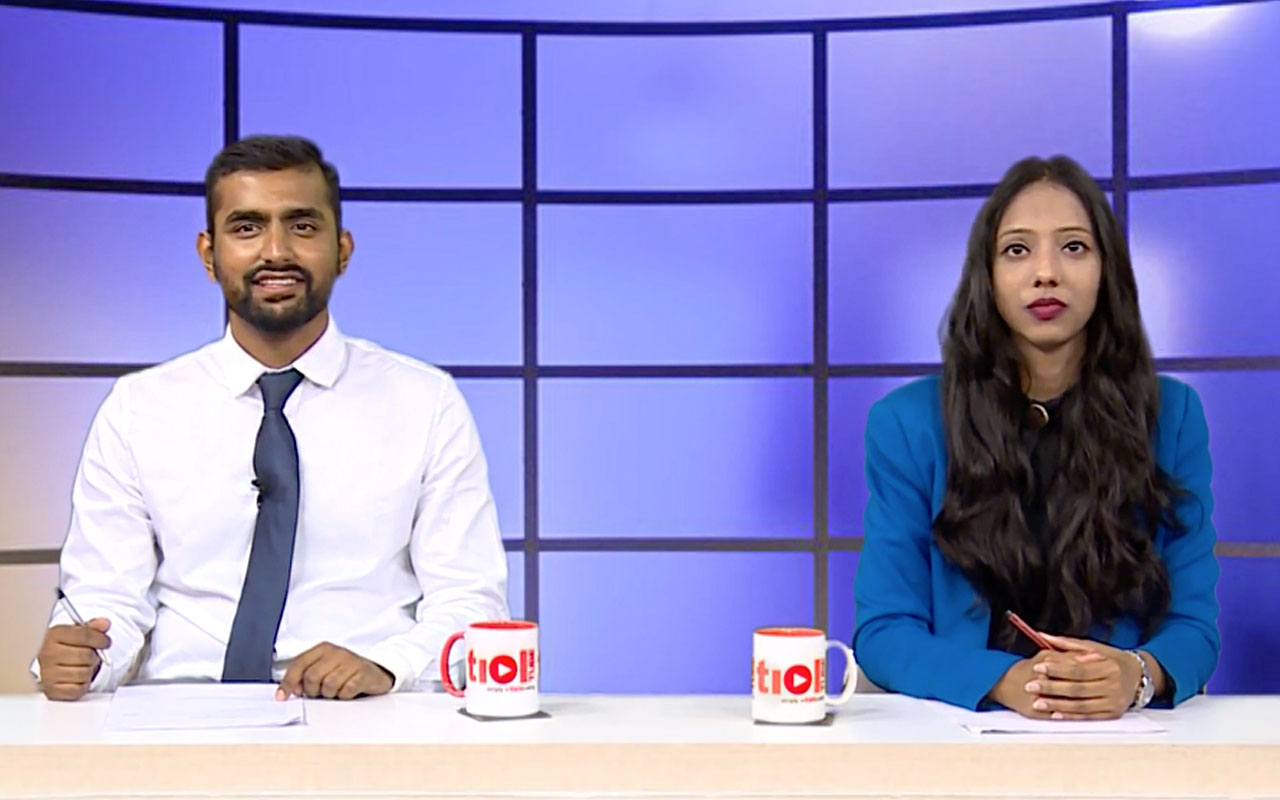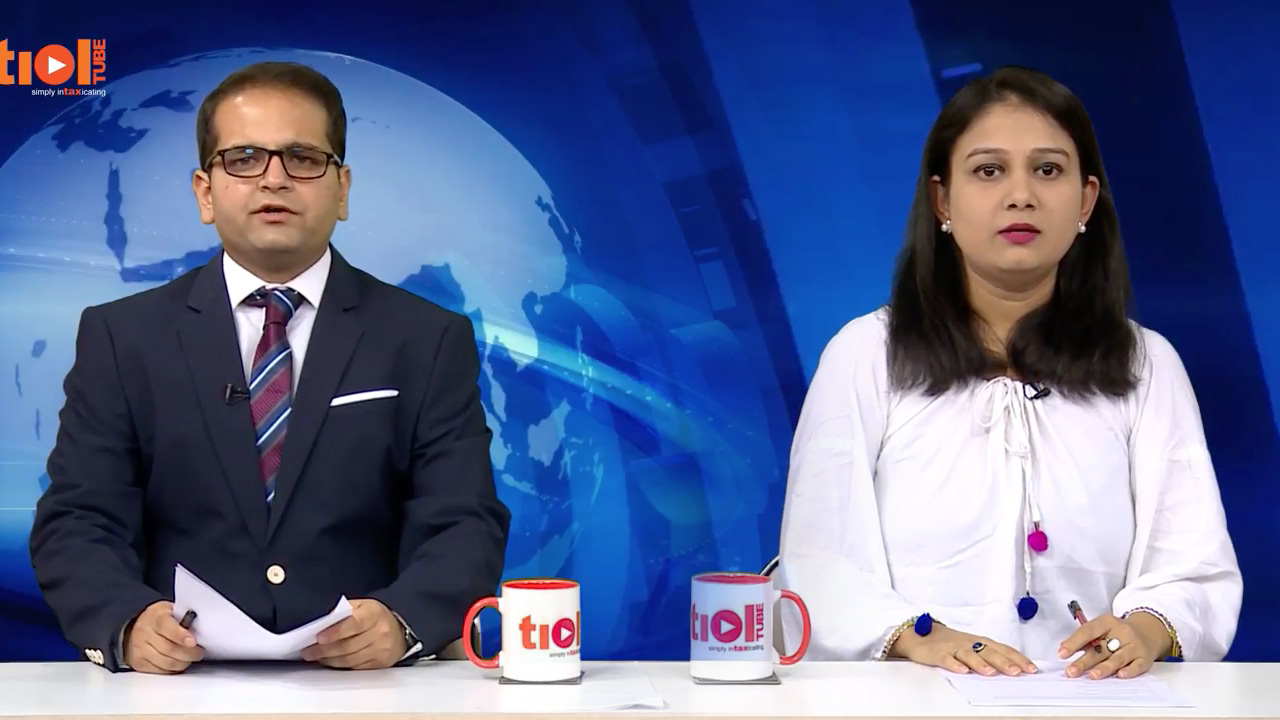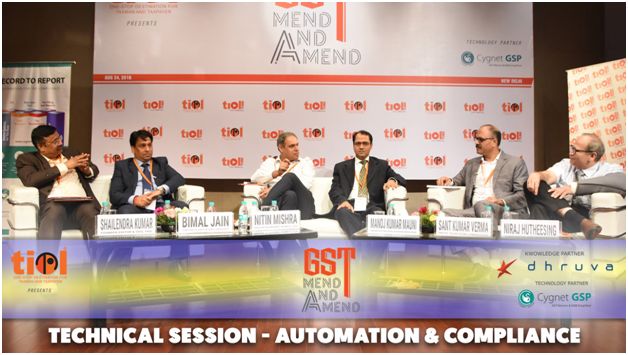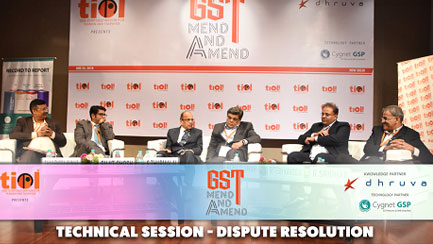SERVICE TAX
2018-TIOL-2068-HC-MUM-ST + Case Story Team Global Logistics Pvt Ltd Vs CST
ST - Section 35B, 35G of the CEA, 1944 - s.83 of the Finance Act, 1994 - A party who prosecutes a Writ Petition bonafide expecting to succeed cannot be expected to keep preparing for an alternate remedy even before his Petition is rejected - principle of Section 14 of the Limitation Act, 1963 is applicable even in respect of statutory Appeals filed before the Tribunal from the orders passed by the Collector - period of time spent in prosecuting the Petition before the High Court against the order of the Commissioner of Service Tax has to be excluded while computing the period of limitation in filing an Appeal before the Tribunal - delay in obtaining certified copy of order of the High Court also excluded - explanation offered for the delay viz. preparing the Appeal to file it to the Tribunal is reasonable - Order of Tribunal rejecting the application for condonation of delay is set aside and Tribunal directed to consider the appeal on merits - Appeal disposed of: High Court [para 7 to 10]
- Appeal disposed of: BOMABY HIGH COURT
2018-TIOL-3022-CESTAT-BANG
ABB India Ltd Vs CC CE & ST
ST - The assessee company is engaged in manufacturing & clearing excisable items - They also provide taxable output services - The assessee avails Cenvat credit on inputs, capital goods and service tax paid on input services - The assessee is also engaged in trading activity & avails credit on common input services used therein - The Revenue contested such availment on grounds that the assessee did not satisfy mandate of Rule 2(i) of CR 2004 or follow the procedure u/r 6(2) or 6(3) of CCR 2004 as it failed to maintain separate accounts for taxable and exempted services - Duty demands were raised and penalties were imposed - On appeal, the Commr.(A) reduced the quantum of penalty.
Held: The Commr.(A) noted that the assessee neither sought refund of proportionate credit reversed nor contested such reversal - Considered relevant findings in the assessee's own case, wherein it was held that the larger period of limitation is not invokable as assessee was issued SCNs for earlier period & that the entire demand is barred by limitation - Besides, in the present case, no fraud, suppression or mis-statement has been alleged which warrants invoking extended limitation - Hence the demands are time barred and merit being set aside without delving into merits: CESTAT (Para 1,2,6)
- Appeal allowed: BANGALORE CESTAT
2018-TIOL-3021-CESTAT-MAD
Tamil Nadu State Marketing Corporation Ltd Vs PR CGST & CE
ST - The assessee (TASMAC) is a 100% Government of Tamilnadu undertaking - TASMAC is vested with the special privilege of wholesale supply of Indian Made Foreign Liquor (IMFL) for the whole State of Tamil Nadu as per Section 17 (C) (1-A) (a) of Tamil Nadu Prohibition Act, 1937 - The Corporation has various shops across the state for the purpose of sale of liquor and many of them have bars attached to them - With effect from 1-2-2005, TASMAC granted permission to contractors to sell eatables in bar and to collect the empty liquor bottles left in the bars for a monthly license fee payable by such contractors to it - TASMAC floats tenders setting an upset price (base price) which is fixed as 2.5% of average monthly turnover of the shop raised by current year growth rate @ 10% and the highest bidder is granted permission for sale of eatables and to collect the empty liquor bottles on payment of security deposit which is equal to the consideration payable for 2 months - The licence fee collected on monthly basis is accounted under "Income from Operations" in their Profit & Loss Account - It appeared to department that the contractors can conduct their business only after issue of a licence by TASMAC, on payment of licence fee; that without the support of TASMAC in the form of giving permission to sell eatables and to collect empty bottles, contractors would have no business; therefore upto 30-06-2012, the services rendered by TASMAC is a taxable service under "Support Service of Business or Commerce" under Section 65 (104c) read with Section 65 (105) (zzzq) of the Finance Act, 1994; that after 1.7.2012, the services are continued to be taxable since they are not covered under the negative list or otherwise exempted - Tribunal is unable to fathom how permission to run a bar adjacent to TASMAC wine shop along with a responsibility cast on the successful contractor to sell eatables and collect empty bottles, albeit for a fee, can be said to be analogous and in immediate connection with the type of activities exemplified in the inclusive definition of "Support Services of Business or Commerce" - Therefore Tribunal is not able to find favour with the proposition that income generated by assessee by way of collecting fees from tenders for contracting the impugned activities to successful contractors can, by any stretch of imagination are to be considered as taxable income and become liable to service tax under BSS - Part of the impugned order which has confirmed the tax liability on assessee for the period upto 30.06.2012 under "Business Support Service" defined under Section 65 (104c) read with Section 65 (105) (zzzq) of FA, 1994 is set aside.
The decision by the Board of Directors of TASMAC giving permission to award such contractors for running a bar, supplying eatables, cleaning, collecting empty bottles etc. is only a decision of the Board and cannot be brought on par with sovereign function exercised by the State - Even the Supplementary Audit conducted by the Comptroller and Auditor General of India of TASMAC has been carried out in terms of Section 619 (3) (b) of the Companies Act, 1956 only - The activities of TASMAC for most of the period under dispute cannot therefore be said to be activities assigned and performed by sovereign / public authority under the authority of law.
In exercise of powers conferred by sections 17-C, 17-D, 21 and 22-D read with Section 54 of Tamil Nadu Prohibition Act, 1937, in Tamil Nadu Liquor Retail Vending (in Shops and Bars) Rules, 2003 was amended by insertion of Rule 9A w.e.f. 29.03.2013 - This amendment has accorded statutory backing and authority to TASMAC under law to grant the privilege of running bars, selling eatables and collecting empty bottles to private entities by tender - The entire tender amount from such successful tenderers, except for 1% of the collected amount retained as agency commission by TASMAC is remitted to the Government of Tamil Nadu - Thus, from 29.03.2013, the impugned services of TASMAC would definitely fall in the negative list of services as statutory function being carried out by them based on authority of law - Hence, assessee will be exigible to service tax liabilityin respect of the impugned activities only for the period 1.7.2012 to 28.03.2013 as 'taxable service' under Section 65B (44) of the Finance Act, 1994 - TASMAC is liable to pay service tax of the licence fees received for the period 1.7.2012 to 28.3.2013.
As regards to penalty, entire dispute is one of interpretation and there are at least two circulars before introduction of negative list regime and one subsequent to that, which have found it necessary to dwell upon the liability to service tax in respect of such activities performed by instrumentalities of the State - The issue of liability to tax in respect of such activities was also subject matter of litigation as evidenced from number of High Court judgements - In this scenario, there cannot be any penalty imposed on assessee: CESTAT
- Appeals partly allowed: CHENNAI CESTAT
2018-TIOL-3020-CESTAT-AHM
Krishna Communication Vs CST ST
ST - The assessee company is engaged in providing Advertising Service - On audit, the Department noted that the assessee earned excess income in its profit & loss a/c in comparison to ST-3 returns filed for the relevant period - The Department alleged that such differential amount was not declared or offered for taxation - Duty demands were raised u/s 73 with interest u/s 75 and penalties u/s 76, 77 & 78 of the Finance Act 1994 - On appeal, the Commr.(A) set aside the demands raised under extended limitation & while upholding the demand for normal period and the interest - While the penalties u/s 76 & 78 were upheld the penalty u/s 77 was reduced.
Held: The demand is raised on the difference between total income shown in balance sheet & gross value in ST-3 returns - In the period of dispute, the tax was chargeable only on receipt of gross value for service provided - The total income in the balance sheet is based on billed amount - No tax is leviable on billed amount though recorded in the books of accounts but out of which a part amount is not received - Since such aspect was not considered, the matter warrants remand - Besides, penalties u/s 76 & 78 cannot be imposed simultaneously & so penalty u/s 76 is set aside - Issue is kept open regarding penalty u/s 78: CESTAT (Para 1,4)
- Case remanded: AHMEDABAD CESTAT
CENTRAL EXCISE
2018-TIOL-2067-HC-MAD-CX + Case Story
CCE Vs Surya Fine Chemicals
CX - Authorities have neither pleaded malafide nor suppression in the show cause notice, and moreover acted belatedly, against the assessee - SCN issued in January 2001 for the period December 1995 to June 1997 although registration obtained in June 1997 - When the bonafide of appellant is patent from records, in view of the confusion persisting in the industry, it would not be proper to hold the adjudication made is within the limitation period - Tribunal has rightly set aside the demand on the ground of limitation - authorities ought to have satisfied themselves with regard to the element of mens rea which is one of the components for invoking Section 11(A) of the Central Excise Act - Civil Miscellaneous Appeal filed by the CCE is dismissed: High Court [para 21 to 25]
- Appeal dismissed: MADRAS HIGH COURT
2018-TIOL-3025-CESTAT-KOL
Western Bitumen Indus Pvt Ltd Vs CCE & ST
CX - Assessee is engaged in manufacture of Coal Tar Pitch of various grades - The raw materials are Crude Oil Tar (partially distilled), S. M. Pitch/G.R.Pitch/M.Pitch and various grades of coal tar pitch - It is the allegation of Department that during the period from April, 2012 to November, 2013; April, 2014 to February, 2015, the factory was closed, but the assessee has claimed the cenvat credit on inputs, which was denied by Department - Penalties were imposed on assessee as well as its officers - From the record, it appears that the assessee has purchased inputs, mainly from the Public Sector Undertaking, like, SAIL, RSP, Bhilai Steel Plant and other manufacturers, like, Tata Steels, M/s Himadri Speciality Chemical Ltd. - The payment was made through Banking Channel - The factory was closed from April, 2012 to November, 2013 & April, 2014 to February, 2015 - Thus, the factory was functional for month of December, 2013 to March, 2014 - During period under consideration, the manufacturing process was continuing with the help of job worker as well as in "Specialized Tankers" - The raw material supplied to job worker, M/s HCIL or other reputed companies, were received back by them in "Specialized Tanker" - When the excise duty was paid on the final product, then, cenvat credit is permissible as per ratio laid down by Tribunal in case of M/s Himadri Speciality Chemicals Ltd. & others, wherein it was observed that essential ingredients for availment of cenvat credit are the discharge of duty liability by assessee - The duty liability has been discharged on said product, which was accepted by Department - When the duty has been accepted on final product, the assessee is entitled for cenvat credit on inputs - Impugned order set aside: CESTAT
- Appeals allowed: KOLKATA CESTAT
2018-TIOL-3024-CESTAT-HYD
Navabharat Ventures Ltd Vs CCT
CX - The assessee is a manufacturer of sugar - They also manufacture dutiable products like Sugar, Molasses, Denatured Spirit and Fuel Oil and some exempted final products like Organic manure, Rectified Spirit, Bagasse, Bio earth and power - Assessee have been availing CENVAT credit on inputs as well as input services - As far as the inputs are concerned, they have reversed the CENVAT credit taken on the inputs which went into generation of exempted products like power, Bagasse but they have not reversed proportionate credit taken on input services going into manufacture of dutiable and final products as required under Rule 6 of CCR, 2004 - The SCN alleges that they have not reversed the input service credit which has gone into production of several exempted products - Of these products, bagasse have already been held by the Supreme Court to be just waste and not an exempted product requiring reversal of CENVAT credit - There are also other products with respect to which the assessee claims that they have already reversed the CENVAT credit such as on electricity - There are products such as organic manure which the assessee claims to have cleared on payment of duty - Therefore, the proper course of action is to remand the matter back to the original authority to examine the claims of assessee in respect to each product and re-determine the amount of duty, if any, to be recovered from them after following principles of natural justice: CESTAT
- Matter remanded: HYDERABAD CESTAT
2018-TIOL-3023-CESTAT-MAD
CCE Vs Triumph International India Pvt Ltd
CX - The assessee is a 100% EoU - It cleared finished goods for clearance to distribution centre located in the same premises of the EOU on payment of duty & thereon to ultimate customers - Excise duty was paid on notional value at rate specified under Notfn No 23/2003-CE upon clearance to distribution centre - The Department opined that the value adopted was lesser than the ultimate sale price charged by distribution centre & alleged short payment of duty - Duty demand was raised with interest & equivalent penalty u/s 11AC - On appeal, the Commr.(A) gave relief to the assessee on grounds that under Notfn No 30/2004-CE, no CVD must be paid - It was also held that since Rule 7 was not invoked in the SCN, the adjudicating authority had travelled beyond its scope to raise duty demand.
Held: Regarding issue of CVD rate equal to Excise duty to be paid on imported goods, considered decision of the Apex Court in SRF Ltd. Vs CC (Import and General), New Delhi wherein it was held that for attracting additional duty u/s 3 on import of a manufactured or produced article the actual manufacture or production of a like article in India is not necessary - Following such precedent, the assessee is eligible for nil CVD - Regarding valuation, the SCN did not invoke provisions of Rule 7 of Customs Valuation Rules and so the raising of duty demand based on deductive value is indeed travelling beyond scope of SCN - Hence the Departmental appeal lacks merit: CESTAT (Para 1,5.1,5.2)
- Revenue's appeal dismissed: CHENNAI CESTAT
CUSTOMS
2018-TIOL-3019-CESTAT-BANG
CC Vs Kingsway Travel Agencies Pvt Ltd
Cus - The assessee have filed a Bill for Entry for clearance of an Excursion boat and sought to classify it under CTH 89011030 attracting nil rate of duty - During the Custom's examination, it was found that the boat was not one designed for ferrying/transporting passengers on scheduled trips but was the one designed for leisure or pleasure boating and the same has been classified by department under CTH 89039990 - Impugned boat imported by assessee is equipped with modern amenities like Swiveling helm seat, Stove, Stainless steel sink, microwave, fridge, coffeemaker and solid surface counter tops - It also contains arrangement for shower, sleep and relaxation - It is no important as to the manner in which the impugned boat is used, it is rather important as to how the boat is built which should be a guideline for determining the classification of boat - In fact, the catalogue describes the impugned boat as "Bayliner 325 Cruiser" and the Bayliner have claimed themselves to be manufacturers and marketers of recreation boats and Cruisers; there is a prima facie evidence that the boat is intended for the luxury uses - Therefore, whatever be the actual use of the said boat, it is required to classify as per the making of the vessel - It is seen that the impugned boat is not principally designed and manufactured for the purpose of transport of persons and goods, it cannot be classify under Heading 8901 - As classification of the impugned boat decided under heading 8903 of CTH, the refund claim does not sustain on merits - Therefore, there is no need to go into the other aspects of the refund claim - Classification of the impugned boat held under CTH 8903: CESTAT
- Appeal allowed: BANGALORE CESTAT
2018-TIOL-3018-CESTAT-DEL
Pawan Kumar Ralli Vs CC
Cus - A CHA who was engaged in clearing a consignment of imported goods - Such goods were found to be misdeclared and under-valued - On enquiry, the CHA named the applicant as being involved in clearing the consignment - Penalties were imposed u/s 112(a) r/w Section 114A of the Act - Besides the declared value of the goods was enhanced and the goods were confiscated with option of redemption fine being offered - The applicant was delayed by about 151 days in filing the present appeal.
Held - The applicant claimed to have been arrested and under trial for some other matters - He also claimed to be engaged in appearing before the DRI - In such circumstances, the delay in filing appeal is condoned subject to payment of costs - Such costs be credited to the Prime Minister's National Relief Fund: CESTAT (Para 1-4)
- Application allowed: DELHI CESTAT |









